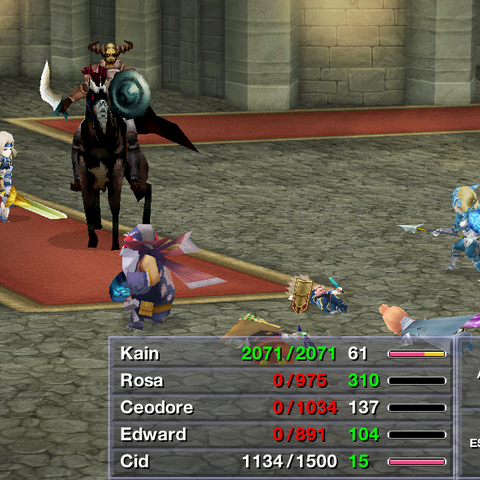Aktivator Odin Versii 137
Sep 29, 1995 - 713-792-8953; Fax: 713-794-0209; douglasdw@odin.mda.uth.tmc.edu. Next Section. The expression of the urokinase-type plasminogen activator, which plays a. View larger version. (1994) Cell 78, 137–147. Odin Recreation is a Colorado based company dedicated to developing and supporting winter sport opportunities in Mesa County and the greater Western Slope. Our initial goal is to develop a winter sports venue at the base of, and in cooperation with, Powderhorn Mountain Resort on the Grand Mesa.
A serpent came crawling (but) it destroyed no one when Woden took nine twigs of glory, (and) then struck the adder so that it flew into nine (pieces). There archived apple and poison that it never would re-enter the house. —Bill Griffiths translation The emendation of nan to 'man' has been proposed. The next stanza comments on the creation of the herbs and while hanging in heaven by the 'wise lord' ( witig drihten) and before sending them down among mankind. Regarding this, Griffith comments that 'In a Christian context 'hanging in heaven' would refer to; but (remembering that Woden was mentioned a few lines previously) there is also a parallel, perhaps a better one, with Odin, as his crucifixion was associated with learning.' The Old English gnomic poem also mentions Odin by name in the (alliterative) phrase Woden worhte, ('Woden made idols'), in which he is contrasted with and denounced against the. God is the origin of all language wisdom's foundation and wise man's comfort and to every hero blessing and hope —Stephen Pollington The first word of this stanza, ōs (Latin 'mouth') is a homophone for Old English os, a particularly heathen word for 'god'.
WHAT IS NEW • Waste are exist all windows. • Effectively go to the sound documents, module and settings. 
Due to this and the content of the stanzas, several scholars have posited that this poem is censored, having originally referred to Odin. Comments that ' Os was cognate with As in Norse, where it meant one of the, the chief family of gods. In Old English, it could be used as an element in first names: Osric, Oswald, Osmund, etc.
But it was not used as a word to refer to the God of Christians. Woden was equated with Mercury, the god of eloquence (among other things). The tales about the Norse god Odin tell how he gave one of his eyes in return for wisdom; he also won the mead of poetic inspiration.
Luckily for Christian rune-masters, the Latin word os could be substituted without ruining the sense, to keep the outward form of the rune name without obviously referring to Woden.' In the poem Solomon and Saturn, 'Mercurius the Giant' ( Mercurius se gygand) is referred to as an inventor of letters. This may also be a reference to Odin, who is in Norse mythology the founder of the runic alphabets, and the gloss a continuation of the practice of equating Odin with Mercury found as early as Tacitus. The poem is additionally in the style of later Old Norse material featuring Odin, such as the Old Norse poem, featuring Odin and the engaging in a deadly game of wits. A 16th-century depiction of Norse gods by: from left to right,, Thor, and Odin In the 11th century, chronicler recorded in a of his that a statue of Thor, whom Adam describes as 'mightiest', sat enthroned in the (located in Gamla Uppsala, Sweden) flanked by Wodan (Odin) and '. Regarding Odin, Adam defines him as 'frenzy' ( Wodan, id est furor) and says that he 'rules war and gives people strength against the enemy' and that the people of the temple depict him as wearing armour, 'as our people depict Mars'.
According to Adam, the people of Uppsala had appointed priests () to each of the gods, who were to offer up sacrifices (), and in times of war sacrifices were made to images of Odin. In the 12th century, centuries after Norway was 'officially' Christianised, Odin was still being invoked by the population, as evidenced by a stick bearing a runic message found among the in Bergen, Norway. On the stick, both Thor and Odin are called upon for help; Thor is asked to 'receive' the reader, and Odin to 'own' them. Poetic Edda [ ]. Odin sacrificing himself upon Yggdrasil as depicted by, 1895 The poem (Old Norse 'Sayings of the High One') consists entirely of wisdom verse attributed to Odin. This advice ranges from the practical ('A man shouldn't hold onto the cup but drink in moderation, it's necessary to speak or be silent; no man will blame you for impoliteness if you go early to bed'), to the mythological (such as Odin's recounting of his retrieval of, the vessel containing the ), and to the mystical (the final section of the poem consists of Odin's recollection of eighteen charms). Among the various scenes that Odin recounts is his self-sacrifice: I know that I hung on a wind-rocked tree, nine whole nights, with a spear wounded, and to Odin offered, myself to myself; on that tree, of which no one knows from what root it springs.
